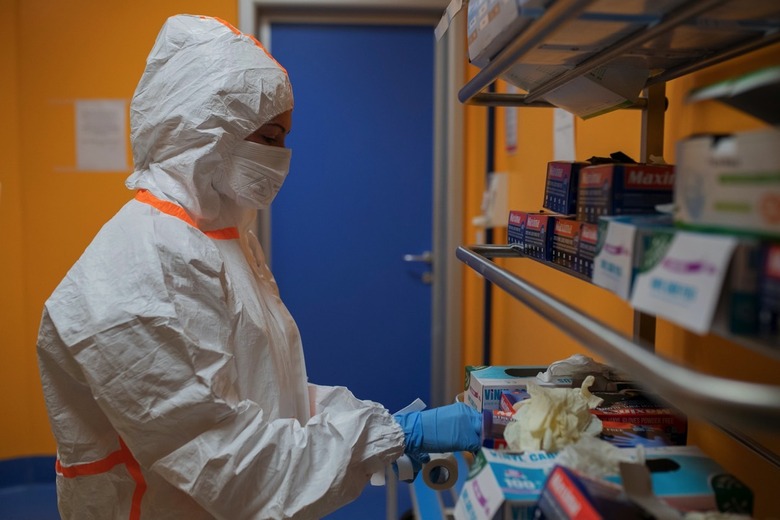Plasma Treatment Reduces Death Risk In Coronavirus Patients, New Study Says
- A new coronavirus study from Italy shows that plasma therapy can significantly reduce COVID-19 mortality in moderate to severe cases.
- The research shows plasma transfusion from COVID-19 survivors can improve the overall condition of patients and reduce the risk of complications and death.
- The study also indicates that antibody-based coronavirus treatment can yield results, and synthetic antibody drugs could be equally effective.
- Visit BGR's homepage for more stories.
The novel coronavirus is here to stay, experts warned this week. But that's not as bad as it may sound. We've learned how to live with all sorts of pathogens over the years. Medical breakthroughs eradicated some of them, but others are harder to kill. Take the flu and AIDS, which keep spreading despite our best efforts. Yet both diseases can be managed successfully, as we have plenty of therapies that are safe and effective.
The same will be true of COVID-19 in the not-so-distant future. We might have a reliable cure even before vaccines are widely deployed, and we've seen a mountain of evidence to support that idea. Doctors have repurposed several drugs for COVID-19 therapy and are in the midst of creating antibody-based medications that could speed up recovery. A new study suggests antibody therapy can be useful, as doctors from Italy proved that plasma transfusion from recovered COVID-19 patients can reduce mortality rates in severe cases.
Doctors have been using plasma therapy in infectious disease for more than 100 years, and they've tried with some success on COVID-19 patients in various countries. Once you recover from COVID-19, your blood may carry antibodies that could prevent future infections of SARS-CoV-2. The stronger your immune response, the better the antibodies may be. These antibodies have already helped patients with severe cases, according to various reports from several countries. However, the anecdotal evidence needs to be backed up by more data.
Doctors in Italy have finalized one such study that says that plasma transfusion reduces the death risk significantly. Detailed in Italian papers La Republica and Il Giorno, the study will soon be published in medical journals.
The conclusion of the research is that the mortality rate in COVID-19 patients drops significantly, from an average of 15% to 6% in patients experiencing a moderate to severe case. The study included 46 patients with various degrees of respiratory failure, including seven people who were intubated. All of them were over 18, but they weren't of old age, which is a risk factor of COVID-19. All tested positive, and all had respiratory issues that required oxygen therapy. Furthermore, CT examinations found bilateral pneumonia in all patients.
The study had three objectives: To reduce the mortality of patients in the ICU, to improve respiratory parameters, and to improve the treatment of inflammation, the paper notes. The best results were obtained on the first objective, but other improvements were also noted.
"Initially, mortality in ICU patients was between 13 and 20%, about 15% on average," San Matteo di Pavia virology director Fausto Baldanti told La Republica. After the hyperimmune plasma treatment, it dropped to 6%. "From one expected death for every six patients, we moved to an expected death for every 16 patients," the doctor told Il Giorno.
Baldanti also said respiratory parameters improved dramatically after the first week. Similarly, the researchers observed a marked improvement in both pneumonia and infection.
The pilot plasma study from Italy should serve as good news to the medical community battling COVID-19 in hospitals. People who have survived COVID-19 should also consider donating blood to hospitals that run similar projects, which could save the lives of those patients who experience severe cases of the disease. Officials in Lombardy, the Italian region where the country's massive coronavirus outbreak started back in February, are considering plasma banks.
More importantly, this study should come in handy for researchers who are creating antibody-based drugs that could be made available more widely than plasma soon. Several pharmaceutical companies are testing such drugs, including antibodies based on llamas, which are apparently immune to SARS-CoV-2. Those drugs will have to prove their effectiveness in separate clinical studies before they can be approved for widespread use.
